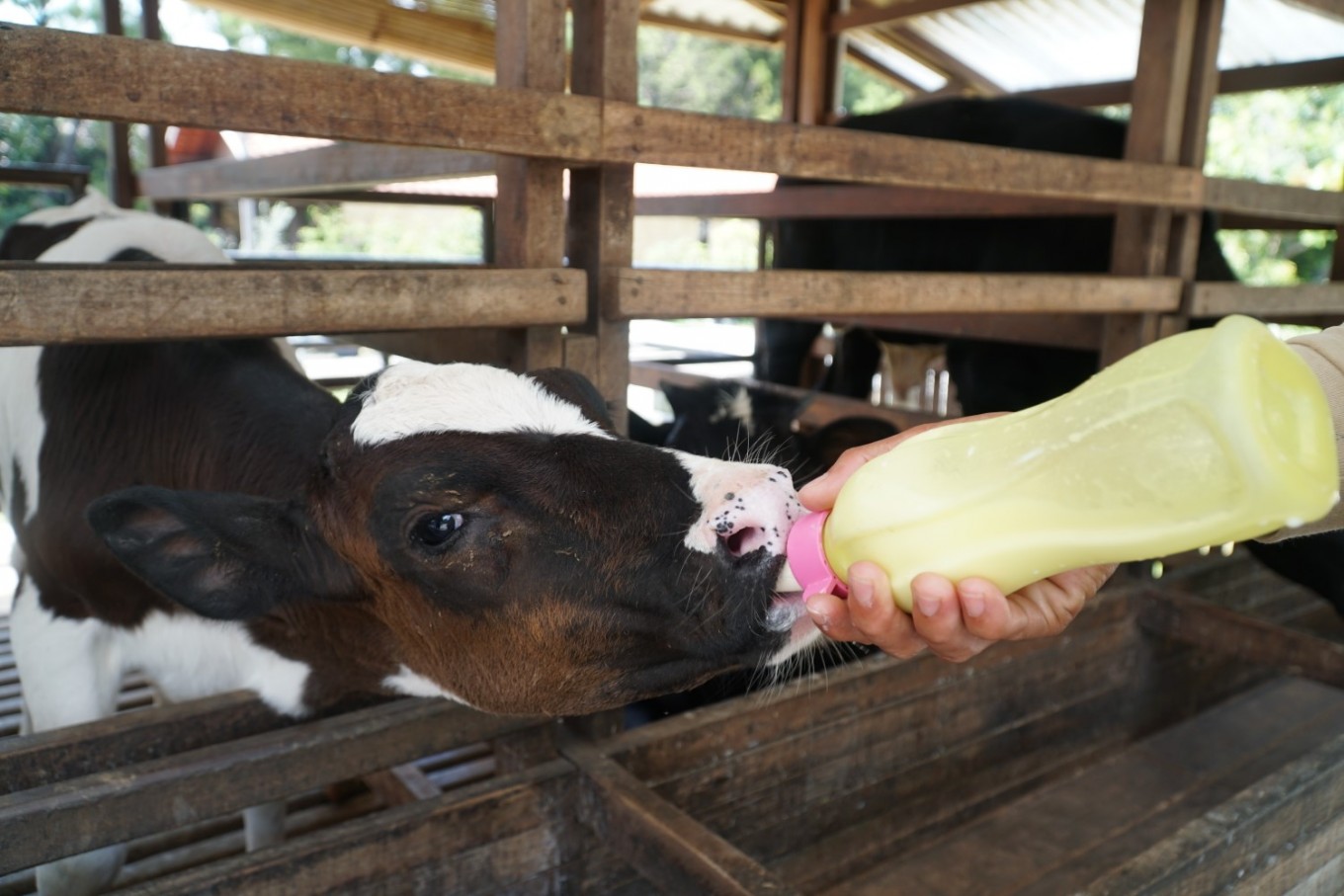Popular Reads
Top Results
Can't find what you're looking for?
View all search resultsPopular Reads
Top Results
Can't find what you're looking for?
View all search resultsSevere viral diarrhea attacks cattle in Keerom, Papua
Change text size
Gift Premium Articles
to Anyone
M
ore than 100 head of cattle have died in Keerom regency, Papua, since January this year suffering from severe diarrhea caused by a viral infection that also attacks sheep, goats and pigs.
The Papuan cattle had likely been infected by pestivirus, aka bovine viral diarrhea virus (BVDV), which in addition to severe diarrhea leads to respiratory ailments, causes pregnant females to abort and prevents young animals from growing strong.
The infected cattle in Papua were between six and 24 months old and the pestivirus killed up to 30 percent of a herd, according to Ronal Kapisa, an official in the husbandry division of the Keenom Agriculture Agency.
“According to the data we collected, more than 100 cattle have died in the last three months,” he told The Jakarta Post on Tuesday.
He said his office had sent organ samples from the dead cattle to the Animal Health Center’s laboratory in Maros, South Sulawesi, for examination. The results confirmed the symptoms, Ronal said.
However, he said his office was still waiting for the hard evidence of the examination results to confirm the disease attacking the cattle and to decide on further action.
“The visible clinical symptoms are indeed cattle suffering from diarrhea, refusing to eat and experiencing dehydration,” Ronal said, adding that for the time being antibiotics, anti-diarrhea medicine and guava leaves were being used by local farmers to deal with the outbreak.
Some local farmers blamed the condition on the extreme weather, which involved many days of heavy rain since January, he added.
A veterinarian at a local health center in Arso district in Keerom, Siti Astuti, confirmed that the deaths had been caused by diarrhea, but said there had only been 55 fatalities, instead of more than 100.
To deal with the condition, she said, she had told breeders to give the cattle guava leaves, coconut sugar and oral rehydration therapy.
A local cattle farmer in Arso, Ira Wene, said she did not realize her cattle were suffering from severe diarrhea until she noticed they were refusing to eat and when they defecated their dung was liquid.
“It went on for three days before they died,” Ira said.
A total of 50 head of cattle belonging to 44 breeders died from the same cause in Arso, Ira said. They were aged between three months and three years. The animals were worth from Rp 9 million (US$637) for a four-month-old to Rp 20 million for a three-year-old.
The cases had so far not affected meat supplies in Jayapura city and regency as meat is also supplied from Merauke regency.
“Meat prices are still normal. The supply is enough. Maybe the impact [of the cattle deaths] would be felt in Idul Fitri,” said trader Mian Sangaji, who sells meat at the Pagi Market in Jayapura.










